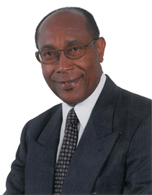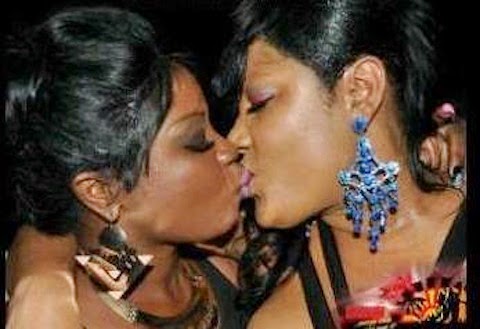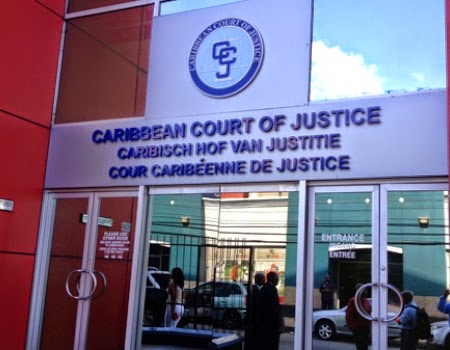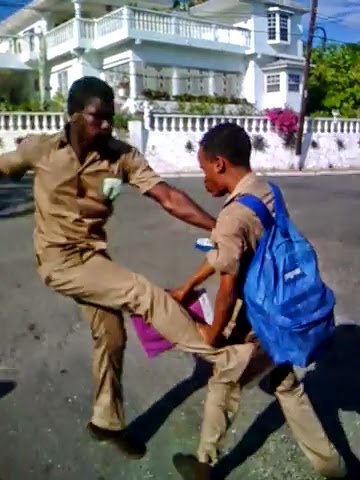By Tiffany Barry
Tiffany Barry is the Social Change Coordinator at the Society Against Sexual Orientation Discrimination (SASOD), based in Georgetown, Guyana.
The Declaration of the Rights of Man and of the Citizen passed by France’s National Constituent Assembly in 1789 is one of the cornerstone documents in the history of human rights. It is the philosophy of this document declaring in essence that all people are created free and equal and have the right to life, liberty, and free will which guided the Haitian revolutionaries as they held steadfast to this ideology which eventually led to the creation of the first black state in the Western hemisphere, Haiti, on January 1, 1804.
In the history of the Caribbean, Haiti has always been viewed as an inspiration and example, a leader despite its struggles, whose resilience as a nation and as a people continues to shine bright. Haiti continues to lead the way for its Caribbean counterparts as it prepares to host the 2015 General Assembly of the Organization of American States (OAS) for the second time in 20 years. On June 25 of this year, Haiti also broke new ground, becoming the first Caribbean Community (CARICOM) member state to sign the Inter-American Convention against Racism, Racial Discrimination and related forms of Intolerance and the Inter-American Convention against all forms of Discrimination, without any reservations.
The signing of these two conventions are monumental because Haiti has once again shown leadership in the pursuit of ensuring the protection of the human rights of all its citizens, and signalling to all other Caribbean states that they are prepared to address the issues which may be seen as taboo and to take a stand for what is right and just. The only other Caribbean country to have signed on to any of the conventions is Antigua and Barbuda which only signed the Inter-American Agreement against Racism, Racial Discrimination and related forms of Intolerance in 2013.
By acceding to both human rights treaties, Haiti is signalling that the state is committed to protecting the rights of all its citizens from violence and discrimination based on age, sex, sexual orientation, gender identity and expression, language, religion, cultural identity, political opinions, social origin, socio-economic status, educational level, disability, genetic trait, mental or physical health condition.
To date, no other Caribbean state has signed these conventions. Rather, some have all footnoted their reservations to the 2014 Resolution on “Human Rights, Sexual Orientation, and Gender Identity and Expression” – a resolution which condemns all forms of discrimination, acts of violence and human rights violations based on sexual orientation, gender identity, and gender expression. This is because in these Caribbean states, there are still laws maintained from the colonial era that criminalise same-sex activities between consenting adults in private, and in the peculiar case of Guyana, cross-dressing.
Recognising that all persons are entitled to the protection of their human rights regardless of their sexual orientation or gender identity is an important step in protecting lesbian, gay, bisexual, transgender and intersex (LGBTI) people from human rights violations, and allows the community to live with dignity, without fear of targeted violence and discrimination which oftentimes results in them becoming a marginalized, vulnerable and impoverished group. President of Guyana, Donald Ramotar recently indicated that his administration will not demonstrate leadership in the protection of its LGBT citizens by removing laws which criminalise them because the majority of its citizens are not “ready” to recognise the human rights of LGBTI Guyanese. But world history teaches us that people are often never ready for progressive change. The world was not prepared for the signing of the Declaration on the Rights of Man, yet it was signed; the majority of the British and American public were not in favour of the Emancipation Declaration, yet it was delivered.
The OAS has over the years taken measures to ensure that the rights of LGBTI citizens throughout the hemisphere are recognized and protected and that discussions pertaining to the development of the region do not exclude the region’s sexual and gender minorities. This year’s OAS General Assembly amply themed “Development with Social Inclusion” held in Asuncion, Paraguay, in June, was an ample opportunity for our Caribbean leaders to show leadership and to break away from many of the old ideologies imposed upon us during the colonial era by proving that they are committed to inclusive development – development of and for all people – which is not possible if all its citizens are not provided with an equal platform to contribute to the development of the Americas.
Instead, many foreign ministers while being open to discussing the issues affecting its LGBTI citizens, and acknowledging that they should not suffer discrimination, fell short of demonstrating leadership to ensure that these sentiments become a reality. The resolution on “Human Rights, Sexual Orientation, and Gender Identity and Expression” requires member states to eliminate barriers to equal access for LGBT persons with regards to political participation and other areas of public life as well as eliminate interference in their private lives; adopt public policies against discrimination that help prevent violence against LGBTI persons and ensure equal judicial protections for the victims of violence motivated by sexual orientation and/or gender identity; research and publish statistics on violence motivated by homophobia and transphobia; ensure adequate protection for human rights defenders; and ensure adequate protection for intersex people and to implement policies and procedures, as appropriate, to ensure the conformity of medical practices with recognized human rights standards. The resolution was passed with a record number of reservations by some Caribbean states namely: Guyana, Barbados, Trinidad and Tobago, St. Vincent and the Grenadines, Jamaica and Suriname.
The overarching sentiments for footnoting there reservations to this resolution were that the concepts of sexual orientation, gender identity and gender expression are not understood within these Caribbean states and that these nations embrace, or are “consulting” on, punitive laws, which therefore prohibits their endorsement of the resolution which commits states to take actions against violence and discrimination.
Participating in this year’s General Assembly provided an opportunity for SASOD to engage Caribbean foreign ministers and ambassadors to the OAS on issues hindering the advancement of human rights protection for LGBTI persons. Many of them were quite open to dialogue; in fact, the Foreign Minister of St. Lucia made it a priority to speak with civil society representatives from her country working for the protection of LGBTI persons there. The Foreign Minister of Belize approached our Caribbean contingent and engaged us in an hour-long conversation about the struggles of the region to recognize LGBTI citizens as equal and deserving of recognition and protection. In fact he included two other dignitaries from the Belizean delegation in the conversation to show that they are open to discussing the LGBTI issues. I was unable to engage the Guyanese delegation in any formal discussion. Guyana is pushing for Ambassador Bayney Karran to become OAS Assistant Secretary General when the post becomes vacant next year. But he is up against another Caribbean contender, Belize’s US Ambassador, Nestor Menez. LGBTI issues have become very prominent on the OAS agenda in the last seven years with annual resolutions on “Human Rights, Sexual Orientation and Gender Identity” being passed by the General Assembly since 2008. This year, Commissioner Tracy Robinson from Jamaica, who is also the Rapporteur on the Rights of LGBTI Persons, became the Chair of the Inter-American Commission on Human Rights. It would also be smart foreign policy for Guyana to be more open to dialogue on meaningful support – not just lip service – to LGBTI issues, both at home and at the OAS.
Today, political leaders of so-called independent states in the Caribbean continue to hold steadfast to some laws imposed upon us under colonialism. This contradiction begs several questions: Why are the minds of supposedly free people still being controlled by colonial ideology? Why are they so afraid to extend the fundamental principles that our foreparents fought so hard for to all our citizens? The time has come for all free men and women to release the shackles of mental slavery and to realize that as a region we will not develop fully if we keep excluding sections of our populations. The enjoyment of civil and political rights as well as economic, social and cultural rights should be extended to all Caribbean citizens, including sexual and gender minorities.
Guyanese President Ramotar also stated that he does not discriminate against persons based on their sexual orientation and gender identity. Other government ministers have also publicly expressed similar sentiments. However, the reason they are in office is to lead. They have an important role to play in creating, amending and repealing laws. Good, people-centred laws are created to protect citizens and promote equality. Why then is it so difficult to create laws that protect our LGBTI citizens? It is one thing to say “I am not homophobic” but it takes more than words to make this meaningful for LGBTI Guyanese. As the saying goes, talk is cheap.
As Guyana and the rest of the region begin to engage in post 2015 discussions as the way forward from the soon to be expired Millennium Development Goals in 2015, it should be noted that all talks about sustainable development will have to deal with how we include all citizens regardless of race, ethnicity, sex, gender, sexual orientation, gender identity, socio-economic background, religion and other grounds. The 2014 OAS General Assembly on “Development with Social Inclusion” was clear that the region needs to adopt a rights-based approach to development. We cannot speak about eradicating poverty and promoting economic and social development if we continue to oppress segments of our population. By doing this we are demonstrating an unequal approach to poverty reduction and development. Moreover, in order to ensure the equal distribution of socio-economic development, we have to address causes of inequality, discrimination, violence and poverty. A good place to start is to address laws, policies and practices, which are discriminatory, and lead to the marginalization of our minority groups.
If we are free people capable of independent, rational thought, we would realize that holding on to oppressive laws and practices are counterproductive to our development. It is time for free people to emancipate our minds and reject all forms of oppression. This is what Haiti is doing by adopting the most inclusive human rights treaties, and ending institutional discrimination in law and policy.
Also see from SASOD's blogs: DECLARATION OF THE LESBIAN, GAY, BISEXUAL, TRAVESTI, TRANSSEXUAL, TRANSGENDER, AND INTERSEX COALITION OF THE AMERICAS BEFORE THE GENERAL ASSEMBLY OF THE OAS
The signing of these two conventions are monumental because Haiti has once again shown leadership in the pursuit of ensuring the protection of the human rights of all its citizens, and signalling to all other Caribbean states that they are prepared to address the issues which may be seen as taboo and to take a stand for what is right and just. The only other Caribbean country to have signed on to any of the conventions is Antigua and Barbuda which only signed the Inter-American Agreement against Racism, Racial Discrimination and related forms of Intolerance in 2013.
By acceding to both human rights treaties, Haiti is signalling that the state is committed to protecting the rights of all its citizens from violence and discrimination based on age, sex, sexual orientation, gender identity and expression, language, religion, cultural identity, political opinions, social origin, socio-economic status, educational level, disability, genetic trait, mental or physical health condition.
To date, no other Caribbean state has signed these conventions. Rather, some have all footnoted their reservations to the 2014 Resolution on “Human Rights, Sexual Orientation, and Gender Identity and Expression” – a resolution which condemns all forms of discrimination, acts of violence and human rights violations based on sexual orientation, gender identity, and gender expression. This is because in these Caribbean states, there are still laws maintained from the colonial era that criminalise same-sex activities between consenting adults in private, and in the peculiar case of Guyana, cross-dressing.
Recognising that all persons are entitled to the protection of their human rights regardless of their sexual orientation or gender identity is an important step in protecting lesbian, gay, bisexual, transgender and intersex (LGBTI) people from human rights violations, and allows the community to live with dignity, without fear of targeted violence and discrimination which oftentimes results in them becoming a marginalized, vulnerable and impoverished group. President of Guyana, Donald Ramotar recently indicated that his administration will not demonstrate leadership in the protection of its LGBT citizens by removing laws which criminalise them because the majority of its citizens are not “ready” to recognise the human rights of LGBTI Guyanese. But world history teaches us that people are often never ready for progressive change. The world was not prepared for the signing of the Declaration on the Rights of Man, yet it was signed; the majority of the British and American public were not in favour of the Emancipation Declaration, yet it was delivered.
The OAS has over the years taken measures to ensure that the rights of LGBTI citizens throughout the hemisphere are recognized and protected and that discussions pertaining to the development of the region do not exclude the region’s sexual and gender minorities. This year’s OAS General Assembly amply themed “Development with Social Inclusion” held in Asuncion, Paraguay, in June, was an ample opportunity for our Caribbean leaders to show leadership and to break away from many of the old ideologies imposed upon us during the colonial era by proving that they are committed to inclusive development – development of and for all people – which is not possible if all its citizens are not provided with an equal platform to contribute to the development of the Americas.
Instead, many foreign ministers while being open to discussing the issues affecting its LGBTI citizens, and acknowledging that they should not suffer discrimination, fell short of demonstrating leadership to ensure that these sentiments become a reality. The resolution on “Human Rights, Sexual Orientation, and Gender Identity and Expression” requires member states to eliminate barriers to equal access for LGBT persons with regards to political participation and other areas of public life as well as eliminate interference in their private lives; adopt public policies against discrimination that help prevent violence against LGBTI persons and ensure equal judicial protections for the victims of violence motivated by sexual orientation and/or gender identity; research and publish statistics on violence motivated by homophobia and transphobia; ensure adequate protection for human rights defenders; and ensure adequate protection for intersex people and to implement policies and procedures, as appropriate, to ensure the conformity of medical practices with recognized human rights standards. The resolution was passed with a record number of reservations by some Caribbean states namely: Guyana, Barbados, Trinidad and Tobago, St. Vincent and the Grenadines, Jamaica and Suriname.
The overarching sentiments for footnoting there reservations to this resolution were that the concepts of sexual orientation, gender identity and gender expression are not understood within these Caribbean states and that these nations embrace, or are “consulting” on, punitive laws, which therefore prohibits their endorsement of the resolution which commits states to take actions against violence and discrimination.
Participating in this year’s General Assembly provided an opportunity for SASOD to engage Caribbean foreign ministers and ambassadors to the OAS on issues hindering the advancement of human rights protection for LGBTI persons. Many of them were quite open to dialogue; in fact, the Foreign Minister of St. Lucia made it a priority to speak with civil society representatives from her country working for the protection of LGBTI persons there. The Foreign Minister of Belize approached our Caribbean contingent and engaged us in an hour-long conversation about the struggles of the region to recognize LGBTI citizens as equal and deserving of recognition and protection. In fact he included two other dignitaries from the Belizean delegation in the conversation to show that they are open to discussing the LGBTI issues. I was unable to engage the Guyanese delegation in any formal discussion. Guyana is pushing for Ambassador Bayney Karran to become OAS Assistant Secretary General when the post becomes vacant next year. But he is up against another Caribbean contender, Belize’s US Ambassador, Nestor Menez. LGBTI issues have become very prominent on the OAS agenda in the last seven years with annual resolutions on “Human Rights, Sexual Orientation and Gender Identity” being passed by the General Assembly since 2008. This year, Commissioner Tracy Robinson from Jamaica, who is also the Rapporteur on the Rights of LGBTI Persons, became the Chair of the Inter-American Commission on Human Rights. It would also be smart foreign policy for Guyana to be more open to dialogue on meaningful support – not just lip service – to LGBTI issues, both at home and at the OAS.
Today, political leaders of so-called independent states in the Caribbean continue to hold steadfast to some laws imposed upon us under colonialism. This contradiction begs several questions: Why are the minds of supposedly free people still being controlled by colonial ideology? Why are they so afraid to extend the fundamental principles that our foreparents fought so hard for to all our citizens? The time has come for all free men and women to release the shackles of mental slavery and to realize that as a region we will not develop fully if we keep excluding sections of our populations. The enjoyment of civil and political rights as well as economic, social and cultural rights should be extended to all Caribbean citizens, including sexual and gender minorities.
Guyanese President Ramotar also stated that he does not discriminate against persons based on their sexual orientation and gender identity. Other government ministers have also publicly expressed similar sentiments. However, the reason they are in office is to lead. They have an important role to play in creating, amending and repealing laws. Good, people-centred laws are created to protect citizens and promote equality. Why then is it so difficult to create laws that protect our LGBTI citizens? It is one thing to say “I am not homophobic” but it takes more than words to make this meaningful for LGBTI Guyanese. As the saying goes, talk is cheap.
As Guyana and the rest of the region begin to engage in post 2015 discussions as the way forward from the soon to be expired Millennium Development Goals in 2015, it should be noted that all talks about sustainable development will have to deal with how we include all citizens regardless of race, ethnicity, sex, gender, sexual orientation, gender identity, socio-economic background, religion and other grounds. The 2014 OAS General Assembly on “Development with Social Inclusion” was clear that the region needs to adopt a rights-based approach to development. We cannot speak about eradicating poverty and promoting economic and social development if we continue to oppress segments of our population. By doing this we are demonstrating an unequal approach to poverty reduction and development. Moreover, in order to ensure the equal distribution of socio-economic development, we have to address causes of inequality, discrimination, violence and poverty. A good place to start is to address laws, policies and practices, which are discriminatory, and lead to the marginalization of our minority groups.
If we are free people capable of independent, rational thought, we would realize that holding on to oppressive laws and practices are counterproductive to our development. It is time for free people to emancipate our minds and reject all forms of oppression. This is what Haiti is doing by adopting the most inclusive human rights treaties, and ending institutional discrimination in law and policy.
Also see from SASOD's blogs: DECLARATION OF THE LESBIAN, GAY, BISEXUAL, TRAVESTI, TRANSSEXUAL, TRANSGENDER, AND INTERSEX COALITION OF THE AMERICAS BEFORE THE GENERAL ASSEMBLY OF THE OAS


































.mp4_000005372.jpg)
.mp4_000005529.jpg)
.mp4_000005686.jpg)


